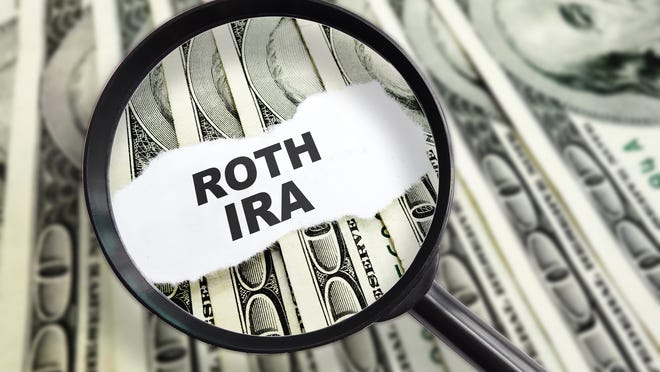Q. In your response to Billy about Roth IRAs, you said that contributions can be tax-free at any time, but taxes can be levied on other withdrawals as well. How does it work?
– Except in Satellite Beach
A. Sam, if you use a Roth IRA account properly, you will not pay tax for any distribution. You will get the most money when the money is deposited and left to grow until at least 59 years old½. Regardless, if you need money from a Roth IRA, you can always access your taxes without taxes, and you may have non-taxable access to other funds in the Roth IRA.
There are two five-year rules that apply to Roth IRAs. One states that if you distribute amounts that have been converted to a Roth IRA less than five years after the conversion and if you are not younger than 59, a penalty of 10% of the allocation will apply. This rule applies to each conversion separately.

The second five-year rule says that earnings withdrawn within five years of opening a taxpayer’s first Roth IRA are taxed regardless of the taxpayer’s age. If it is below 59 ½, a penalty of 10% is also envisaged. Once five years have passed since the opening of the first Roth IRA, this rule is no longer a problem even if the original Roth IRA no longer exists.
When you allocate any funds from the Roth IRA, a set of ordering rules applies.
1. The first dollars are considered to be from your regular contributions. Because contributions are made after tax, these withdrawals are non-taxable.
2. After you distribute the equivalent of the total amount of your contributions, the next dollars set aside are considered converted amounts more than five years ago. You would pay the tax at the time of conversion, so no tax is paid when you withdraw your account. Because these converted amounts are more than five years old, the five-year rule that applies to conversions is met and a penalty is charged for these distributions as well.
3. The following are amounts converted less than five years ago. At the time of conversion, you would pay tax, but would not pay the 10% penalty that typically applies to amounts coming out of the IRA before age 59. So if you subtract more than the contributions in # 1 and the older conversions in # 2 and you still have less than 59 1/2, you pay a 10% penalty when you get to these converted funds.
4. The last thing after you have taken all the previous contributions and conversions is considered earnings by default. The factor here is the second rule of five years. For earnings to be tax-free, you must have at least 59½, and at least five years must have passed since opening your first Roth IRA.

Let’s say you’ve made $ 10,000 in contributions over the years, converted $ 20,000 six years ago, another $ 30,000 two years ago, and the account is worth $ 70,000. The first $ 10,000 you take is tax-free (# 1 above), as is the next $ 20,000 (# 2).
The next $ 30,000 removed (# 3) is tax-free even if you have more than $ 59. If you are under 59½, you will owe a fine of 3,000 USD (10% of 30,000 USD). The last $ 10,000 is earnings and is taxed based on item # 4 above. This is calculated on IRS Form 8606.
Dan Moisand, CFP®, is a former national president of the Financial Planning Association, and at least 10 financial planning publications have been presented as one of America’s top financial planners. You can get it at moisandfitzgerald.com or 321-253-5400, Ext. 101.
